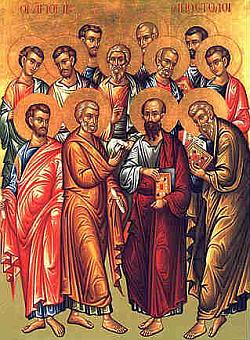One of the hallmarks of the final days, as noted by Scripture, is a horrifying level of unbelief.
Jesus said it Himself:
“Nevertheless, when the Son of Man comes, will he find faith on earth?”
—Luke 18:8b ESV
The end of all things depicted in the Book of Revelation shows that even when all of the earth is afflicted by the outcomes of supernatural wrath, mankind refuses to believe:
The rest of mankind, who were not killed by these plagues, did not repent of the works of their hands nor give up worshiping demons and idols of gold and silver and bronze and stone and wood, which cannot see or hear or walk, nor did they repent of their murders or their sorceries or their sexual immorality or their thefts.
—Revelation 9:20-21 ESV
There are some today who want to cast aspersions on the Kingdom of God and its many miraculous components, and they want to question how the Holy Spirit works in believers. Oddly, many doing so call themselves Christians. Though they claim to abide by the authority of Scripture and not by personal experience, they regularly challenge the miraculous in the Bible’s pages by asking where all the miracles are today. And they ask why those Christians who still believe in the miracles that are the hallmark of the Kingdom can’t always manufacture those miracles when such is demanded.
These naysayers like to point fingers at the ones who still have faith that supernatural works can occur through the ministrations of simple believers filled with God’s Holy Spirit. When a miracle does not happen, the naysayers often mock those who still believe in the miraculous.
But what the naysayers never take into account is the power of unbelief within a community. They do not ask how it is possible for the Revelation passage above to be true, that despite all the unrepentant have seen and experienced, the recipients of unprecedented levels of supernatural wrath remain in the grips of the powerful delusion that is unbelief.
We turn to the authority of Scripture to explain what happens when an entire community is gripped by unbelief:
[Jesus] went away from there and came to his hometown, and his disciples followed him. And on the Sabbath he began to teach in the synagogue, and many who heard him were astonished, saying, “Where did this man get these things? What is the wisdom given to him? How are such mighty works done by his hands? Is not this the carpenter, the son of Mary and brother of James and Joses and Judas and Simon? And are not his sisters here with us?” And they took offense at him. And Jesus said to them, “A prophet is not without honor, except in his hometown and among his relatives and in his own household.” And he could do no mighty work there, except that he laid his hands on a few sick people and healed them. —Mark 6:1-5 ESV
Jesus, the Son of Man, who was filled in all His being by the Holy Spirit, who was the sinless Messiah and Alpha and Omega, could do no mighty work in a community filled with unbelief.
When we consider the times we live in and the supposed paucity of miracles we see, do we ever ask if the reason for the lack of the miraculous is because the community around us is mired in unbelief?
Do we ask ourselves what a community of genuine belief can do when all unbelief has been thrown off?
Do we ever think that the miracle denied the faithful person is because everyone around that faithful person does not believe?
Or do we blame the faithful person?
Or worse, do we blame God?
The question of the miraculous today never takes into account the crippling power of unbelief, especially when multiplied throughout a community. And those who would question the miraculous never ask if their unbelief and the unbelief of those they gather around them is what stands in the way of miracles.


